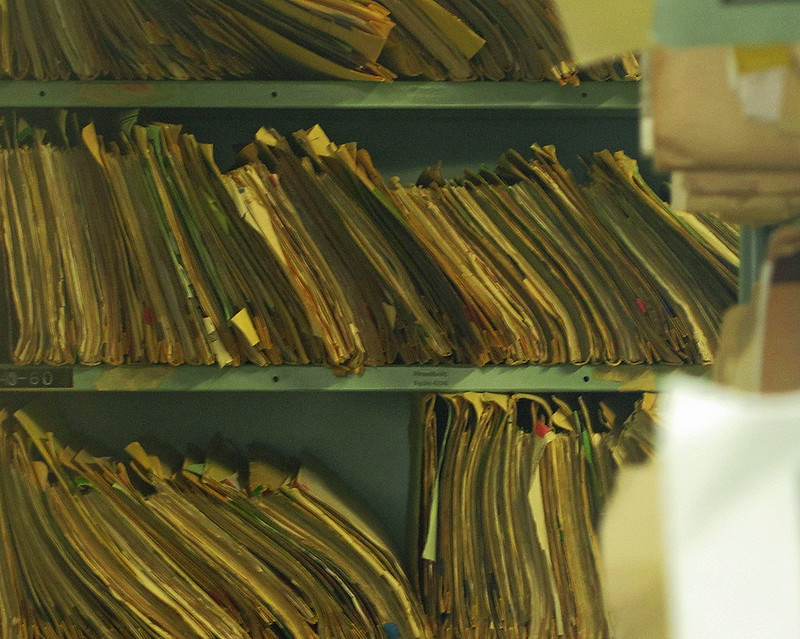When I first started learning how to write SOAP (subjective, objective, assessment and plan) notes, I was under the impression they would serve as objective documents to detail the medical history and current health problems experienced by patients. It seemed these notes were to be created by — and for — clinicians as a way to recall and communicate medical information amongst the health care team. I now realize this perception could not be more wrong. In addition to clinicians, patients can and do read their notes. Even as a medical student early in my clinical training, patients are already reading mine.
Patients have had legal access to their medical records for years. However, this was not well-known to the public, and the hassle alone prevented many patients from ever seeking their medical information. In 2016, the 21st Century Cures Act changed this by mandating that by April 5th 2021, eight categories of clinical notes be made immediately available to patients through secure online portals, a practice commonly referred to as “open notes.” Some categories remained protected — such as patients with certain psychiatric disorders. Moreover, many health systems interpreted the law in a way that maintains a barrier to access for documentation of clinical ethics consultations.
However, even this may change. Starting on October 6, 2022, the definition of “electronic health information” within the Cures Act is shifting to include all electronic protected health information. It remains unclear how health systems will interpret this additional clause, or if there is even room for ambiguity given the expanded scope of the bill.
Open note practices were established to promote and protect patient autonomy — one of the four principles of bioethics. Allowing patients access to their medical records gives them more voice and responsibility in their care, builds trust between physicians and patients and allows patients to make more thoroughly informed medical decisions. At an even more basic level, medical information is most relevant, personal and consequential for patients themselves, and it seems intuitive that patients should be able to quickly access medical information that is theirs.
Another striking benefit is the ability for patients to correct erroneous information about their own health. Indeed, a recent study showed that at least half of all patients’ medical information contained errors. While open notes can work to support autonomy and establish more accurate medical records, there has also been a slew of associated problems with the new practice.
A 2011 analysis of open notes reported some of the common concerns from physicians about note sharing, such as worry over “frightening and confusing patients; recording their thoughts candidly; and writing about such issues as mental health, substance abuse, cancer, and obesity.” Notably, in this study, the concerns were higher for physicians who did not participate in open note practices (this study occurred prior to the mandate), but the concerns are saliently stated, especially for medical students in training.
While I support the philosophy underlying open notes and think it is ultimately better for patients and physicians alike, I have concerns of my own. I remain unsure whether and when it is appropriate to document a patient’s race, gender, sexuality, religion and/or other identity markers that could be potentially medically relevant. This remains an unsettled issue in the realm of medical documentation and, to be sure, we must proceed with care in determining how to best document health information while simultaneously being sensitive to the fact that patients can and do read their notes.
Many traditionally vogue medical terms like obese, addict, nonadherent, agitated, abuse and many others may soon fall out of favor, but only time will tell. I am certain there will be growing pains with this new standard, and many additional ethically-charged questions remain unanswered. For instance, how do we serve non-English speakers who have access to portals but cannot read the notes? What about the nearly 32 million adults that cannot read? How will we ensure private health information remains private now that it is much more easily accessible? Indeed, we have much to figure out as a medical community.
Despite some of the relevant concerns and tribulations, the reality is that open notes is now the law of the land. Patients can and will read our notes, and the time to respond to these difficult questions is now, whether we like it or not. Even on my first rotation as a medical student, patients are reading my notes — upon preceptor review, though sometimes I receive little to no addendums in my notes.
More than ever, it is incumbent among medical students to be precise, deliberate and intentional with their writing. Words have the capacity to both harm and heal — how we use them matters. The necessity to write well is now a fundamental part of the physician-patient relationship and we can leverage open notes in our favor to build better relationships with our patients. In the oft spoken mantra of my favorite medical humanities professor, “words matter.” Let us proceed under the new paradigm of open notes never to forget this.
Image credit: Paper files of medical records (CC BY 2.0) by Newtown grafitti

